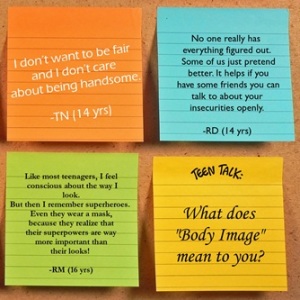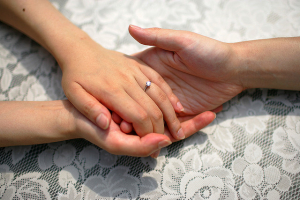
EMOTIONAL EATING: DO YOU EAT TO FEEL BETTER?
If you’re new to the term “emotional eating,” reflect on these questions below: Do you eat to feel better (to comfort yourself when feeling upset,

If you’re new to the term “emotional eating,” reflect on these questions below: Do you eat to feel better (to comfort yourself when feeling upset,

Gender dysphoria refers to the intense distress, anxiety, confusion and guilt that an individual goes through when their biological sex comes into conflict with social constructs of gender. It is manifested by a stated desire to be the other sex, frequent passing as the other sex, desire to live or be treated as the other sex and through various other means. It is real and it happens more often than you think.

Those who have social anxiety fear social situations. This fear could be felt in all social situations or it could be about a specific kind of social situation: public speaking, going to parties, attending meetings, talking to classmates or colleagues, making phone calls, eating in public, buying something from a store, etc. The anxiety experienced in these social situations is strongly connected to the fear of being judged negatively by others.

I feel so worried
I’m extremely sad today
I’m very very angry
A feeling is equal to some thoughts and a state of mind – is that it though? When you speak of sadness, anger, fear, despair what do you think these emotions really include? A lot of us mistakenly believe that emotions are just about some thoughts and the way one feels.
This understanding is hugely incomplete
Emotions have a big, big manifestation in the body too. In fact, the body is the seat of emotions.

In the newest rung of society, there is an increasing number of people who find that they want a different life for themselves. Of the several small and big changes that people choose to make in their lives, one of the major ones is choosing not to have children. The realization that you do not want to have children can come with a lot of confusion, concern and some anxiety.

Body Image is what you think and feel about your physical self or your body. As you enter adolescence, “body image” takes center stage and you will have days when you start to feel awkward and uncomfortable in your body. This article introduces you to a healthier and more positive way of looking at yourself and your body.

You are in a whirlwind of emotions, following the discovery of your spouse’s affair. Your perceptions and thoughts could be hugely affected and can greatly influence your decisions. This article has pointers from our team that can help you undertake this journey from the initial discovery to eventual decisions in as healthy a way as possible.

As time goes by, the dynamics of marriage as an institution are changing. The demands on people from within and outside a marital relationship are higher. Sometimes, amidst these numerous and stressful demands, people are not able to feel fulfilled emotionally and might seek relief and solace outside their marriage. In this article, as a team of psychologists, we discuss and enumerate the main psychological reasons for extramarital affairs.

Almost every day, we come across news of murder, assault, rape, and thievery, whether it is in the newspaper, on news channels or through various online media websites. Some people seem to cope with these news reports, some find it difficult to assimilate it. Through this article, we at Inner Space, hope to explain the psychological effects of traumatic news and how we can build healthy coping strategies to deal with these effects.

If you have Obsessive Compulsive Disorder, you know what it feels like to have recurrent intrusive negative thoughts. These thoughts come out of nowhere, make you anxious and make you do things to undo their effect. They make you feel guilty- guilty for just having these thoughts!

We specialize in combining psychotherapy with deep wellness practices like mindfulness and meditation and creating a customized mental health plan for individuals and organisations.
We specialize in combining psychotherapy with deep wellness practices like mindfulness and meditation and creating a customized mental health plan for individuals and organisations.

A young woman from another country moved with her family to live for one year in a town near the monastery. When, in the course of the year she discovered the monastery, she would periodically visit to have discussions with the Abbess. The Abbess introduced her to meditation, which became very meaningful for the young woman.
When the family’s year-long stay was drawing to an end, the young woman asked the Abbess, “In my country there is no Buddhism and no one has even heard about meditation. How can I continue to learn and deepen the practice you have started me on?”
The Abbess said, “When you return home ask far and wide for who, among the wise people, is recognized as having the greatest ability to listen. Ask that person to instruct you in the art of listening. What you learn about listening from such a person will teach you how to further your meditation practice.
― Gil Fronsdal, A Monastery Within: Tales from the Buddhist Path